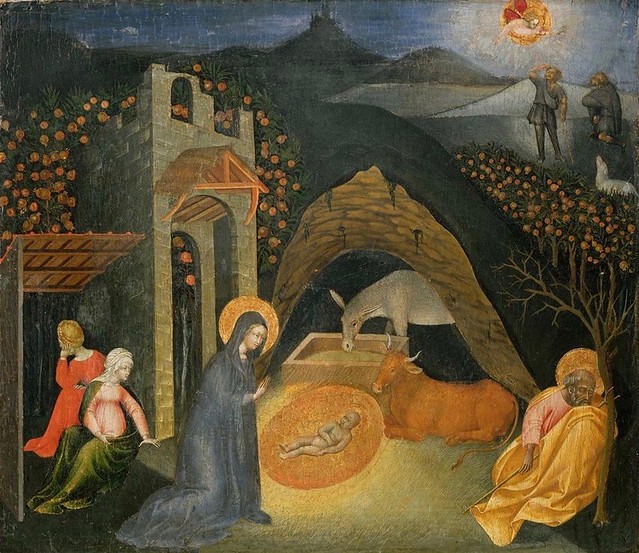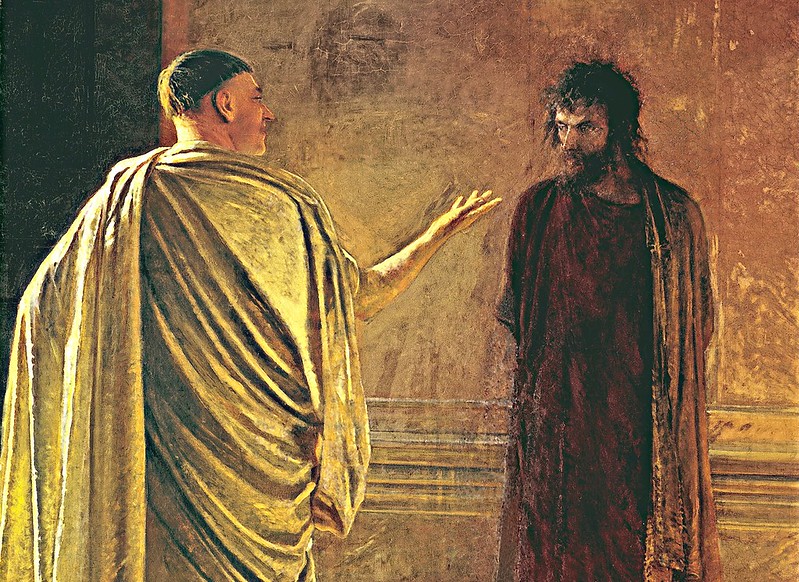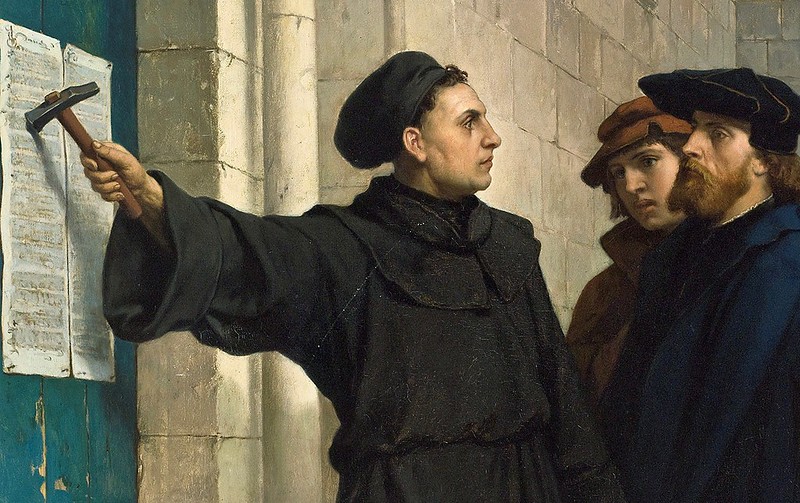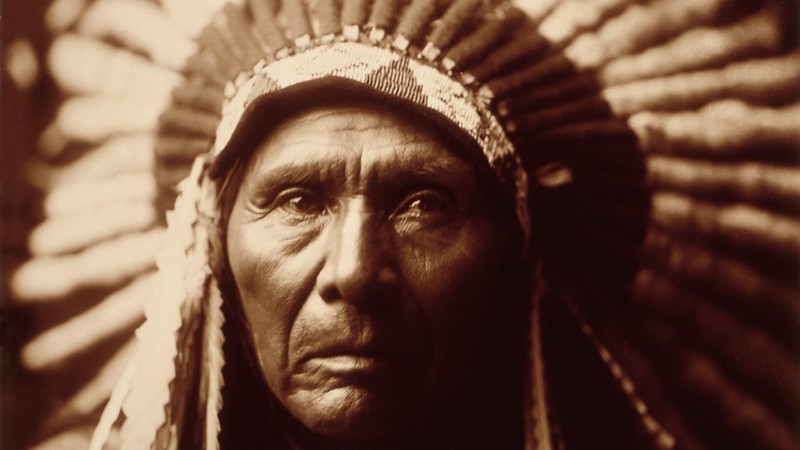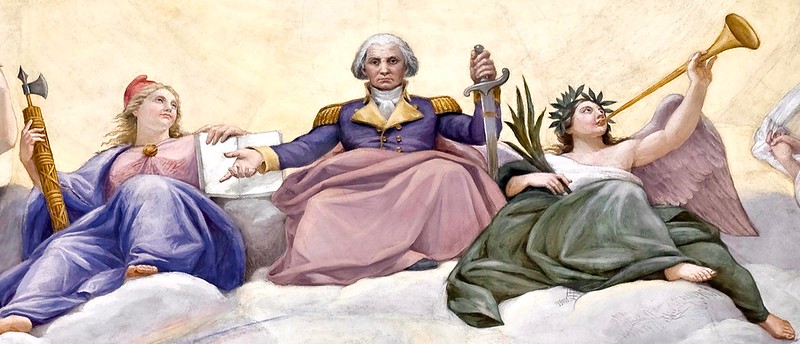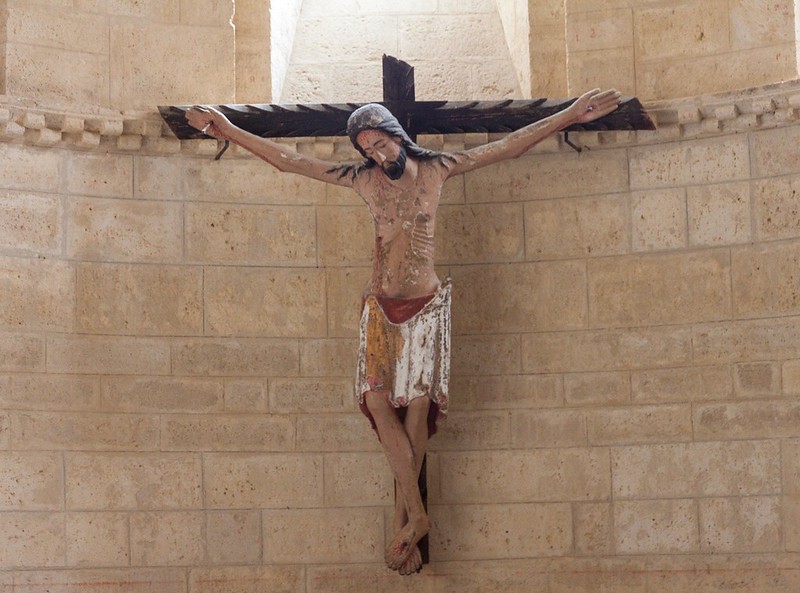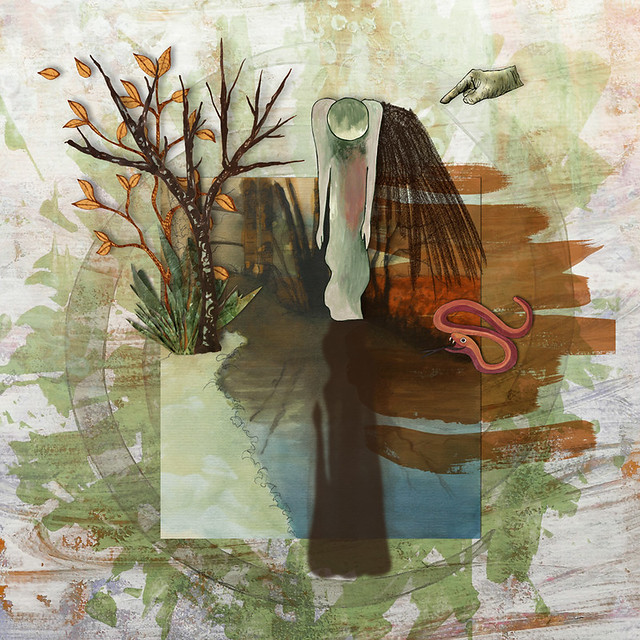“No More of This!” (Why Jesus Armed and Disarmed Peter)
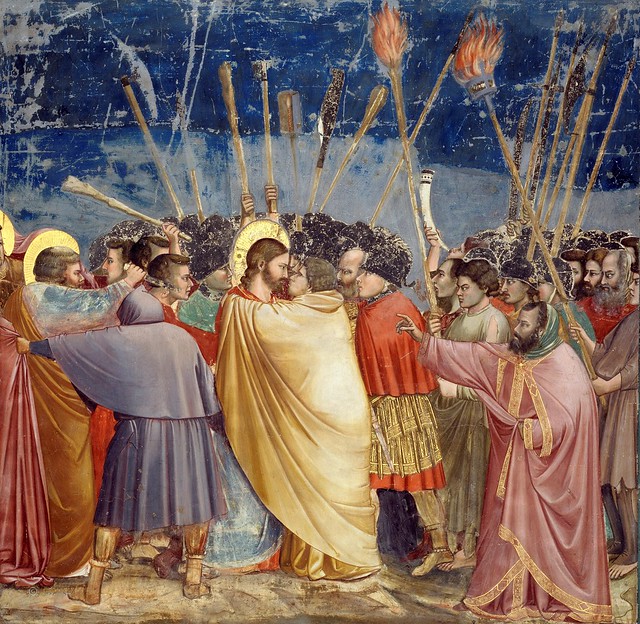
“No More of This!” (Why Jesus Armed and Disarmed Peter)
Brian Zahnd
It’s soon after midnight. We’re in an ancient olive grove with a full moon shining through the boughs. Jesus is in anguished prayer. Disciples are nearby…sleeping. We hear angry voices. A mob is approaching bearing torches. Now they’re upon us and the torchlight reveals the mob is bearing something else — weapons. A battle is about to begin. Luke tells us what happens next.
“There came a crowd, and the one called Judas, one of the twelve, was leading them. He drew near to Jesus to kiss him, but Jesus said to him, ‘Judas, are you betraying the Son of Man with a kiss?’ And when those who were around him saw what was coming, they said, ‘Lord, should we fight? We brought the swords!’ Then one of them struck the servant of the high priest, cutting off his right ear. But Jesus said, ‘No more of this!’ Then Jesus touched the man’s ear and healed him.” –Luke 22:47–51
Read more
